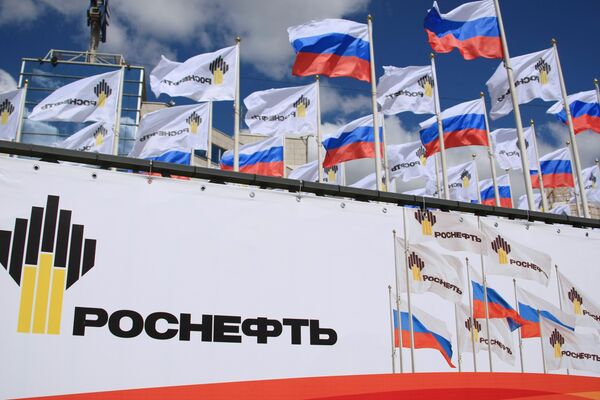The Arctic deal signed by Rosneft and BP is mold-breaking in many ways. First, it is the biggest international project undertaken by Russia's leading state-controlled crude producer, Rosneft, so far. Second, the planned joint venture to develop Arctic deposits is without parallel anywhere in the world and the high levels of risk it comprises mean it could even be said to resemble a venture opportunity.
But it is definitely worth it, as the two companies will develop deposits with reserves of 5 billion tons (36.75 billion bbl) of oil and 10 trillion cu m (353 trillion cu f) of natural gas.
BP to provide technology
Under their strategic partnership agreement announced on January 14, Rosneft will get 5% of BP, valued at $7.8bn as of that day's trading (the deal will be closed within weeks), becoming one of BP's largest shareholders. In exchange, BP will add 9.53% of Rosneft shares to its current 1.25% stake to become the second largest shareholder in the crude producer after the Russian government.
The talks lasted nearly six years and could have continued much longer were it not for the 2008 economic crisis and the Gulf of Mexico oil spill.
As it happens, the Russian side got lucky. Denis Borisov, a Bank of Moscow analyst, explained: "BP stock has tanked: 50% down on mid 2008 levels."
On top of that, the accident at BP's Deepwater Horizon drilling rig in the Gulf of Mexico, which resulted in a massive oil spill, has dramatically worsened the British company's reputation in America.
Alexander Nazarov, senior analyst at the investment firm Metropol, told RIA Novosti that BP had to withdraw from several North American projects and be pro-active in looking for partners in other parts of the world.
Russia badly needs this northern oil. For now, it has sufficient raw materials to meet both internal consumption and export needs, said Boris Tumanyan, a professor at the Gubkin State University of Oil and Gas in Moscow.
Borisov added that the reserve replenishment ratio currently exceeds oil production, but experts point out that this is based on "the additional exploration of old fields and the use of modern oil recovery technology."
Unfortunately, the fact that there are no large new deposits comparable to those being developed in West Siberia has forced Russia to become involved in this risky offshore Arctic project. Russia has the funds for it, but it needs foreign technology.
Arctic risks
All aspects of the deal appear risky. The companies were taking a risk in going for a share-swap deal.
Denis Borisov could not rule out the possibility that Rosneft may find itself becoming entangled in possible new claims made against BP over the oil spill in the Gulf of Mexico. On the other hand, the British company would do well to bear the Yukos case in mind: Western minority shareholders in Yukos filed for damages against the Russian authorities.
All that is nothing by comparison with the risks inherent in this Arctic deal, which experts are already describing as a venture project. The two companies will face unprecedented technical challenges and will have to create new technology to develop these offshore Arctic deposits. On top of that, preliminary estimates have not yet been confirmed: no one can say with any confidence, exactly how much oil the three offshore license blocks - East Prinovozemelsk-1, 2 and 3 - actually contain.
Borisov noted that, even in regions that are better explored than the Arctic, commercial reserves are sometimes as little as one-third of the volume initially estimated. These northern deposits are very poorly explored and tentative estimates of their oil reserves can only be provided by the kind of exploratory drilling that is to take place over the coming 5 to 7 years.
Professor Tumanyan said that commercial oil production there could only start in 20-25 years' time. However, BP CEO Robert Dudley told the media that he expects to start commercial production at the deposits much sooner, in five to ten years' time.
Even if Dudley is proved right, the project's profitability is not guaranteed. The costs of oil production and transportation from the Arctic shelf will be sky-high. Pipelines currently cost between $1 million and $5 million a kilometer to lay, but a pipeline from an Arctic deposit could cost up to $10 million per kilometer.
This is why experts say that the project's only hope of generating a profit is if the Russian government approves tax breaks for it. That does indeed look likely. Last year, Russian oil producers were granted tax holidays for offshore projects. Prime Minister Vladimir Putin also promised to create a favorable tax regime for the new project.
The views expressed in this article are the author's and do not necessarily represent those of RIA Novosti.

